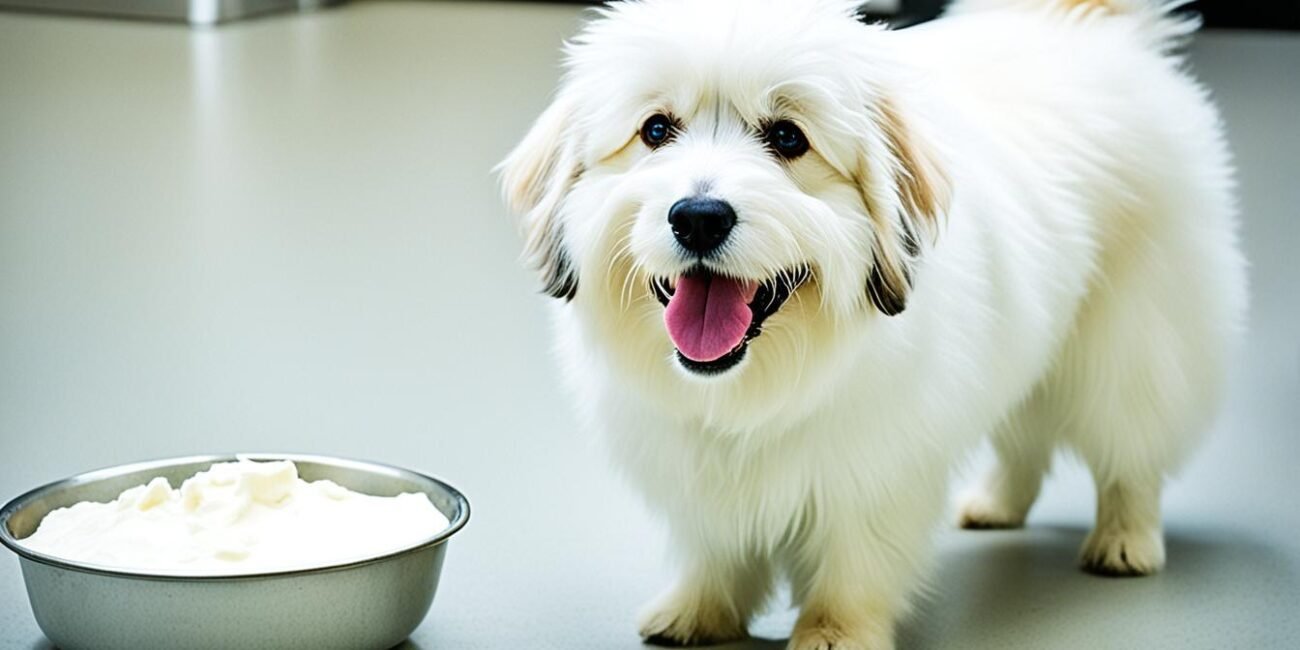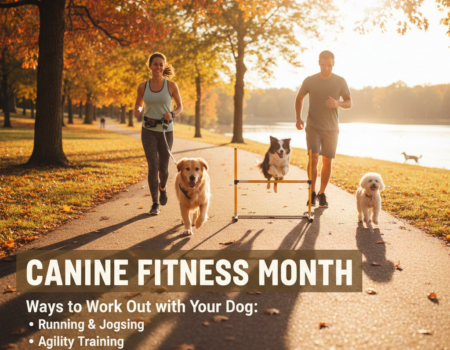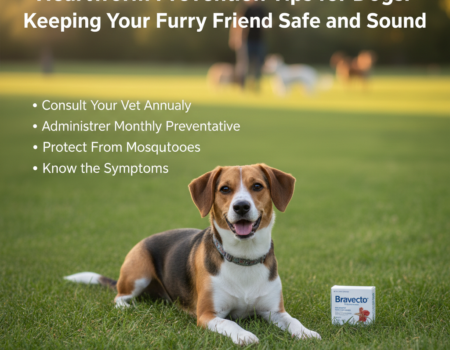Did you know that approximately 65% of dogs are lactose intolerant? That’s right, a majority of dogs have difficulty digesting milk and other dairy products. While we may have grown up seeing images of dogs lapping up a bowl of milk, the reality is that it may not be the best choice for our furry friends. In this article, we dive into the question of whether dogs can drink milk and provide vet-approved advice on the matter.
Key Takeaways:
- Milk is not recommended for dogs due to milk allergies and potential digestive issues.
- Many dogs are lactose intolerant, meaning they cannot digest lactose well.
- Milk alternatives like almond milk and oat milk can still cause gastrointestinal upset in dogs.
- Puppies can safely drink their mother’s milk or commercial weaning formula, but milk is not necessary after weaning.
- The best and safest drink for dogs is water, which should be provided at all times.
Is Milk Good for Dogs?
While milk contains nutrients such as protein and calcium, it carries more risks than benefits for dogs. The high fat content of milk can lead to obesity and pancreatitis if consumed in large amounts. Furthermore, milk can cause gastrointestinal upset in dogs, even in moderate amounts. Dogs can obtain the necessary nutrients from a well-rounded commercial diet and do not need milk as a dietary supplement.
Are Dogs Lactose Intolerant?
Dogs can be lactose intolerant, which means they do not produce enough of the enzyme lactase needed to break down lactose, the sugar found in milk. While puppies are able to digest their mother’s milk because it has lower levels of lactose than cow’s milk, as dogs mature, they may lose the ability to digest lactose properly. This can lead to various gastrointestinal symptoms such as diarrhea, vomiting, and bloating.
Lactose intolerance in dogs is a common condition, and it is important for pet owners to be aware of it. Giving milk to lactose-intolerant dogs can cause discomfort and digestive issues. It is always best to consult with a veterinarian if you suspect your dog may be lactose intolerant.
“Lactose intolerance in dogs can lead to gastrointestinal symptoms such as diarrhea, vomiting, and bloating.”
Lactose intolerance in dogs is not a life-threatening condition, but it can cause discomfort and may require dietary adjustments. Some dogs may be more tolerant of small amounts of lactose than others. However, it is generally recommended to avoid giving milk or other dairy products to dogs, especially if they have shown signs of lactose intolerance in the past.
In the next section, we will discuss the different milk alternatives available for dogs and whether they are suitable for lactose-intolerant pets.
Signs of Lactose Intolerance in Dogs
| Signs | Description |
|---|---|
| Diarrhea | Loose, watery stools |
| Vomiting | Forceful expulsion of stomach contents |
| Bloating | Abdominal swelling and discomfort |
Can Dogs Drink Milk Alternatives?
While milk alternatives like almond milk, oat milk, soy milk, and coconut milk are not toxic to dogs, they are not recommended as regular additions to their diet. While these alternatives may seem like healthy options, they can still cause gastrointestinal upset and allergic reactions in dogs. It’s important to consider the potential risks and benefits before introducing milk alternatives to your dog’s diet.
One key factor to consider when it comes to milk alternatives is their nutritional composition. While these alternatives may provide some nutrients, they are often high in calories and fat. Regular consumption of these milk alternatives can contribute to weight gain and obesity in dogs. It’s essential to maintain a balanced and appropriate diet for your furry friend to prevent these issues.
Additionally, some milk alternatives may contain added sugars or artificial sweeteners that are harmful to dogs. Xylitol, a common artificial sweetener used in many human foods and beverages, is highly toxic to dogs and can cause serious health problems. It’s crucial to carefully read the labels of milk alternatives and avoid any products with potentially harmful additives for your dog’s safety.
Milk alternatives may also present a higher risk of allergies in dogs. Even though these alternatives are plant-based, dogs can still be allergic to specific ingredients in these products. Allergic reactions can manifest as skin irritations, digestive issues, or respiratory problems. If you suspect your dog may have allergies, it’s best to consult with a veterinarian for proper diagnosis and guidance.
“While milk alternatives may seem like healthy options, they can still cause gastrointestinal upset and allergic reactions in dogs.”
It’s crucial to remember that water is the best and safest drink for dogs. It’s readily available and does not carry the potential risks associated with milk alternatives. Always ensure that your dog has access to fresh, clean water throughout the day to stay properly hydrated.
In some situations, such as when a dog is lactose intolerant or has milk allergies, milk alternatives may seem like a viable option. However, it’s always best to consult with a veterinarian before introducing any new food or drink to your dog’s diet. They can provide professional advice tailored to your dog’s specific needs and help you make informed decisions regarding milk alternatives.
Benefits and Risks of Common Milk Alternatives for Dogs:
| Milk Alternative | Benefits | Risks |
|---|---|---|
| Almond Milk | May provide some vitamins and minerals | High in fat; potential risk of nut allergies |
| Oat Milk | May offer dietary fiber | High in calories; may contain gluten |
| Soy Milk | Source of plant-based protein | May cause digestive upset in some dogs |
| Coconut Milk | May provide some electrolytes and healthy fats | High in calories and fat; potential risk of pancreatitis |
Remember, when it comes to your dog’s diet, their specific needs and health conditions should always be taken into account. While milk alternatives may seem appealing, it’s best to prioritize your dog’s overall well-being and consult with a veterinary professional for personalized recommendations.
Can Puppies Drink Milk?
Puppies require proper nutrition to support their growth and development. While milk plays a crucial role in the early stages of a puppy’s life, it is important to understand when and how to provide milk to puppies.
Puppies can safely drink their mother’s milk or a commercial weaning formula made specifically for them. Mother’s milk provides essential nutrients and antibodies that support the puppy’s immune system and overall health. It is the ideal source of nourishment during the first few weeks of life.
However, once puppies are weaned and start transitioning to solid food, milk is no longer necessary in their diet. At this stage, a balanced commercial puppy food provides all the necessary nutrients for their growth. It is formulated to meet their specific nutritional needs and supports their developing bodies.
Cow milk and goat milk are not suitable replacements for dog milk when puppies are weaned. These types of milk may contain components that are too rich or deficient for puppies’ nutritional requirements. It is essential to provide puppies with a diet that meets their specific needs and promotes healthy growth.
So, while milk is beneficial for newborn puppies, it is not a long-term dietary requirement for them. Proper nutrition, including a balanced commercial puppy food, is crucial for their overall well-being and development.
Are you considering adding a new furry member to your family? Puppies bring joy and excitement to our lives, and ensuring they receive the right nutrition is essential for their health and happiness.
In the next section, we will explore other options besides milk that are safe and beneficial for dogs. We will discuss suitable beverages for dogs and the importance of providing them with adequate hydration. Let’s continue our journey to discover the best options for your beloved four-legged friend.
What Can a Dog Drink Besides Water?
When it comes to beverages for dogs, water is undoubtedly the best and safest option. Dogs should have access to fresh water at all times to stay hydrated and maintain their overall health. However, it’s essential to note that there are several popular human drinks that are not safe for dogs and can have harmful effects on their well-being.
Some of the beverages that dogs should avoid include:
- Juice: Although it may be tempting to offer your furry friend a taste of your refreshing fruit juice, it’s important to remember that many juices contain added sugars or artificial ingredients that can be harmful to dogs.
- Tea: Certain compounds found in tea, such as caffeine and theobromine, can be toxic to dogs. It’s best to keep tea away from your canine companion.
- Coffee: Coffee contains high levels of caffeine, which can lead to various health issues in dogs, including restlessness, increased heart rate, and even caffeine poisoning.
- Alcohol: Alcohol is extremely dangerous for dogs and should never be given to them under any circumstances. Even small amounts of alcohol can cause severe intoxication and potentially fatal consequences.
It’s important to prioritize your dog’s well-being by offering them safe and appropriate beverages. While water is the best choice for hydrating your furry friend, if you want to offer them an alternative to water on occasion, there are a few options that can be considered safe in moderation.
“Remember, water is the best and safest drink for dogs, but if you’d like to provide an alternative, there are a few options.”
Some safe beverages for dogs, when given in moderation, include:
- Low-sodium chicken or beef broth: A small amount of unsalted broth added to your dog’s water can provide added flavor and encourage hydration. Make sure to choose broths that are low in sodium to avoid excessive salt intake.
- Coconut water: Natural coconut water can be a refreshing and hydrating option for dogs. However, it’s essential to select plain, unsweetened coconut water without any added sugars or artificial sweeteners.
- Dog-safe herbal tea: Some herbal teas, such as chamomile or ginger tea, can be safe for dogs when given in moderation. However, it’s crucial to consult with your veterinarian before introducing any new herbal tea to your dog’s diet.
“While these options can be given to dogs in moderation, it’s always best to consult with your veterinarian before introducing any new beverages to your dog’s diet.”
It’s important to note that while some pet owners may consider giving their dogs milk as an alternative beverage, it is not recommended. Dogs do not have the necessary enzymes to digest lactose properly, which can lead to gastrointestinal upset and other adverse reactions. Milk is best avoided to prevent any potential health issues.
The Importance of Water for Dogs
Water plays a vital role in a dog’s overall health and well-being. It helps regulate body temperature, aids in digestion, transports nutrients, eliminates waste, and supports various bodily functions.
Inadequate water intake can lead to dehydration, which can cause serious health problems for dogs. Some signs of dehydration in dogs include excessive panting, dry gums, loss of skin elasticity, lethargy, and sunken eyes. If you suspect that your dog is dehydrated, it is crucial to seek veterinary attention immediately.
“Water is essential for dogs. It helps regulate body temperature, aids digestion, and supports overall health.”
To ensure that your dog remains properly hydrated, make sure they always have access to fresh, clean water. Regularly clean and refill their water bowl, and consider providing multiple water sources throughout your home, especially during hot weather or periods of increased activity.
“Keep your dog hydrated by providing them with fresh, clean water at all times. Regularly clean and refill their water bowl.”
| Beverage | Safety for Dogs |
|---|---|
| Water | Safe and essential for dogs |
| Juice | Unsafe; may contain added sugars or artificial ingredients |
| Tea | Unsafe; certain compounds can be toxic to dogs |
| Coffee | Unsafe; high levels of caffeine can be dangerous for dogs |
| Alcohol | Extremely dangerous and toxic to dogs |
| Low-sodium broth | Safe in small amounts; adds flavor and hydration |
| Coconut water | Safe in moderation; choose plain, unsweetened varieties |
| Herbal tea | Safe in moderation; consult with a veterinarian |
| Milk | Not recommended for dogs; can cause gastrointestinal upset |
Can Dogs Drink Milk? Understanding Lactose Intolerance in Dogs
Lactose intolerance in dogs is a common condition that occurs due to the lack of lactase enzyme production, which is necessary to break down lactose, the sugar found in milk. Dogs may experience various symptoms of lactose intolerance, including loose stools, diarrhea, vomiting, bloating, and abdominal pain.
Dogs can become lactose intolerant as they mature because their bodies produce less lactase. This decrease in lactase production can make it challenging for dogs to digest lactose effectively, leading to gastrointestinal upset.
It is important for dog owners to understand the signs of lactose intolerance in dogs. If your dog experiences any of the symptoms mentioned above after consuming milk or dairy products, it is likely that they are lactose intolerant. Avoiding milk and dairy can be beneficial in preventing gastrointestinal distress.
Symptoms of Lactose Intolerance in Dogs
The symptoms of lactose intolerance in dogs may vary in severity, and not all dogs may experience all of these symptoms. Some common signs to look out for include:
- Loose stools
- Diarrhea
- Vomiting
- Bloating
- Abdominal pain or discomfort
If you notice these symptoms occurring after your dog consumes milk or dairy products, it is advisable to consult with your veterinarian for a proper diagnosis and guidance on managing your dog’s lactose intolerance.
Causes of Lactose Intolerance in Dogs
The primary cause of lactose intolerance in dogs is the reduction in lactase enzyme production as they mature. Puppies can typically digest their mother’s milk due to its lower lactose content. However, as dogs grow older, their bodies produce less lactase, making it difficult to break down lactose effectively.
This reduction in lactase enzyme production can be influenced by various factors, including genetic predisposition or certain medical conditions that affect the digestive system. Certain dog breeds may also be more prone to lactose intolerance, such as the Border Collie, Cavalier King Charles Spaniel, and Dalmatian.
It is important to note that lactose intolerance is different from a milk allergy. While lactose intolerance is the inability to digest lactose, a milk allergy occurs when a dog’s immune system reacts to the proteins found in milk. If you suspect your dog has a milk allergy, it is recommended to seek veterinary advice for proper diagnosis and management.
| Symptoms of Lactose Intolerance in Dogs | Causes of Lactose Intolerance in Dogs |
|---|---|
|
|
Can Dogs Have Milk Allergies?
Some dogs may have allergies to milk proteins, which can result in symptoms such as red, inflamed skin, itchiness, hives, facial swelling, difficulty breathing, and gastrointestinal upset. Dairy allergies in dogs are different from lactose intolerance and can be more severe. If a dog shows signs of a milk allergy, immediate veterinary attention is necessary to prevent further complications.
Recognizing Symptoms of Milk Allergies in Dogs
Milk allergies in dogs can manifest in various ways. It is crucial for dog owners to be aware of the symptoms and seek prompt veterinary care if their furry companion displays such signs.
- Red, inflamed skin
- Excessive itching and scratching
- Hives or rashes
- Facial swelling, particularly around the eyes and mouth
- Difficulty breathing
“Dog owners should always be vigilant and observant when introducing new foods to their pets, especially dairy products. Milk allergies can significantly impact a dog’s quality of life and require immediate attention,” advises Dr. Sarah Thompson, a renowned veterinarian.
Dairy allergies in dogs can also cause gastrointestinal distress, resulting in:
- Diarrhea
- Vomiting
- Abdominal pain
If you suspect that your dog has a milk allergy, it is important to consult a veterinarian for proper diagnosis and management. They may recommend an elimination diet to identify the specific allergen and prescribe appropriate treatment.
What Kind of Milk Can Dogs Drink?
When it comes to giving milk to dogs, not all types are created equal. While some milk options may be safe for dogs in small quantities, others can cause digestive problems. Let’s explore which types of milk are suitable for our furry friends:
Almond Milk
Almond milk can be given to dogs in moderation. However, it’s crucial to check the ingredients and ensure that there are no added sugars or artificial sweeteners, as these can be harmful to dogs.
Oat Milk
Similar to almond milk, dogs can tolerate oat milk in small amounts. Again, check the ingredients to make sure there are no added sugars or artificial sweeteners.
Soy Milk
Soy milk is another milk alternative that dogs can consume in moderation. However, excessive consumption may lead to gastrointestinal upset, so it’s essential to monitor your dog’s reaction.
Coconut Milk
Coconut milk is safe for dogs when given in moderation. However, it is high in fat and calories, so it’s important to limit the amount your dog consumes to avoid weight gain.
It’s important to note that cow milk and goat milk are not recommended for dogs. These types of milk can be too rich for their digestive systems and may cause stomach upset.
To ensure that your dog’s diet is well-balanced and provides all the necessary nutrients, consult with your veterinarian. They can provide you with guidance on proper nutrition for your furry companion.
Are Dairy Products Safe for Dogs?
While some dogs may tolerate small amounts of certain dairy products such as cheese and yogurt, it is best to avoid giving dogs dairy altogether. Dairy products can be high in fat, lactose, and calories, which can lead to obesity and digestive issues in dogs. Additionally, dairy products may contain additives or artificial sweeteners that are harmful to dogs.
| Dairy Product | Safe for Dogs? |
|---|---|
| Cheese | Small amounts may be tolerated by some dogs. Make sure to choose low-fat options without added seasonings or ingredients that are toxic to dogs. |
| Yogurt | Plain, unsweetened yogurt can be given in moderation. It is important to avoid flavored or sweetened varieties that may contain ingredients harmful to dogs. |
| Ice Cream | Ice cream should be avoided, as it is high in sugar and can cause digestive upset in dogs. There are canine-friendly frozen treats available that are specifically made for dogs. |
It’s important to note that while some dogs may tolerate small amounts of dairy products, others may experience adverse reactions such as diarrhea, vomiting, or allergic responses. If you choose to give your dog dairy, it should be done in moderation and under the guidance of a veterinarian. It’s always best to consult with your veterinarian before introducing any new foods or treats into your dog’s diet.
What to Do If Your Dog Drinks Milk
If your dog accidentally drinks milk or consumes it in small amounts, it’s important to monitor them for any signs of gastrointestinal upset such as diarrhea or vomiting. While milk ingestion in dogs can lead to digestive issues, the severity of the symptoms can vary.
If your dog shows mild symptoms, such as occasional loose stools, and the symptoms resolve on their own within a day, no immediate action is necessary. In these cases, it’s often safe to wait and observe your dog’s condition. However, it’s still important to ensure access to fresh water for hydration.
However, if the symptoms are severe or persist for more than a day, it is recommended to consult a veterinarian for further guidance and treatment. Your veterinarian will be able to assess your dog’s condition, provide appropriate medical advice, and determine if any interventions or treatments are necessary to alleviate any discomfort caused by the milk ingestion.
Remember, every dog is unique, and their reactions to milk ingestion can vary. What may cause mild symptoms in one dog may result in more severe consequences for another. Seeking veterinary guidance is always recommended to ensure the well-being and health of your furry companion.
If you’re unsure whether your dog has ingested milk or if you have any concerns about their overall health, it’s best to consult a veterinarian to address your specific situation.
Conclusion
In conclusion, it is important to understand that while milk is not toxic to dogs, it is not recommended for regular consumption. Many dogs are lactose intolerant, meaning they lack the enzyme needed to properly digest lactose, the sugar found in milk. This can lead to gastrointestinal upset and other adverse reactions such as diarrhea and vomiting. Additionally, some dogs may also have allergies to milk proteins, further complicating their ability to tolerate milk.
Feeding dogs milk or milk alternatives such as almond milk, oat milk, soy milk, or coconut milk can pose risks to their health. These alternatives may still cause gastrointestinal upset and allergic reactions in dogs, and some may contain added sugars or artificial sweeteners that are toxic to dogs. It is best to stick to a well-rounded commercial diet specifically formulated for dogs, which provides all the necessary nutrients they need for optimal health.
Water, on the other hand, is the best and safest drink for dogs. Ensuring that your dog has access to clean, fresh water at all times is essential for their hydration needs. It is important to recognize the signs of lactose intolerance in dogs and avoid giving them milk to prevent gastrointestinal upset. By prioritizing their health and well-being, you can provide your furry friend with a balanced diet that meets all their nutritional requirements.
FAQ
Can dogs drink milk?
While milk is not toxic to dogs, it is not recommended for regular consumption. Many dogs are lactose intolerant or allergic to milk proteins, which can lead to gastrointestinal upset and other adverse reactions. Dogs can obtain the necessary nutrients from a balanced commercial diet and do not need milk as a dietary supplement. Water is the best and safest drink for dogs to stay hydrated.
Is milk good for dogs?
Milk is not recommended for dogs as many dogs cannot tolerate it due to milk allergies. It is high in fat and calories but not filling, which can lead to excessive weight gain. Additionally, dogs can also be lactose intolerant, meaning they cannot digest lactose well, which can result in gastrointestinal upset such as diarrhea and vomiting.
Are dogs lactose intolerant?
Dogs can be lactose intolerant, which means they do not produce enough of the enzyme lactase needed to break down lactose, the sugar found in milk. Dogs can digest their mother’s milk as puppies because it has lower levels of lactose than cow’s milk. However, as dogs mature, they may lose the ability to digest lactose properly, leading to symptoms such as diarrhea, vomiting, and bloating.
Can dogs drink milk alternatives?
While some dogs may tolerate small amounts of certain dairy products such as cheese and yogurt, it is best to avoid giving dogs dairy altogether. Dairy products can be high in fat, lactose, and calories, which can lead to obesity and digestive issues in dogs. Additionally, dairy products may contain additives or artificial sweeteners that are harmful to dogs.
Can puppies drink milk?
Puppies can safely drink their mother’s milk or a commercial weaning formula made specifically for them. However, once puppies are weaned, milk is no longer necessary in their diet. Cow milk and goat milk are not suitable replacements for dog milk, as they may contain components that are too rich or deficient for puppies’ nutritional needs. A balanced commercial puppy food provides all the necessary nutrients for puppies.
What can a dog drink besides water?
The best and safest drink for dogs is water, which should be provided to them constantly. Many popular human drinks, such as juice, tea, coffee, and alcohol, are not safe for dogs and can have harmful effects. Dogs do not need any other beverages besides water to stay hydrated and meet their nutritional needs.
Can dogs drink milk? Understanding lactose intolerance in dogs
Lactose intolerance in dogs is caused by the lack of lactase enzyme production, which is needed to break down lactose. Symptoms of lactose intolerance in dogs can include loose stools, diarrhea, vomiting, bloating, and abdominal pain. Dogs may become lactose intolerant as they mature because they produce less lactase. It is important to recognize the signs of lactose intolerance in dogs and avoid giving them milk to prevent gastrointestinal upset.
Can dogs have milk allergies?
Some dogs may have allergies to milk proteins, which can result in symptoms such as red, inflamed skin, itchiness, hives, facial swelling, difficulty breathing, and gastrointestinal upset. Dairy allergies in dogs are different from lactose intolerance and can be more severe. If a dog shows signs of a milk allergy, immediate veterinary attention is necessary to prevent further complications.
What kind of milk can dogs drink?
While some dogs may tolerate small amounts of almond milk and oat milk, it is important to check the ingredients for added sugars or artificial sweeteners. Soy milk and coconut milk can also be given to dogs in moderation, but excessive consumption may cause gastrointestinal upset. Cow milk and goat milk are not recommended for dogs, as they can be too rich and cause digestive issues.
Are dairy products safe for dogs?
While some dogs may tolerate small amounts of certain dairy products such as cheese and yogurt, it is best to avoid giving dogs dairy altogether. Dairy products can be high in fat, lactose, and calories, which can lead to obesity and digestive issues in dogs. Additionally, dairy products may contain additives or artificial sweeteners that are harmful to dogs.
What to do if your dog drinks milk
If your dog accidentally drinks milk or consumes it in small amounts, monitor them for any signs of gastrointestinal upset such as diarrhea or vomiting. If the symptoms are mild and resolve on their own, no immediate action is necessary. However, if the symptoms are severe or persist for more than a day, it is recommended to consult a veterinarian for further guidance and treatment.










No Comment! Be the first one.